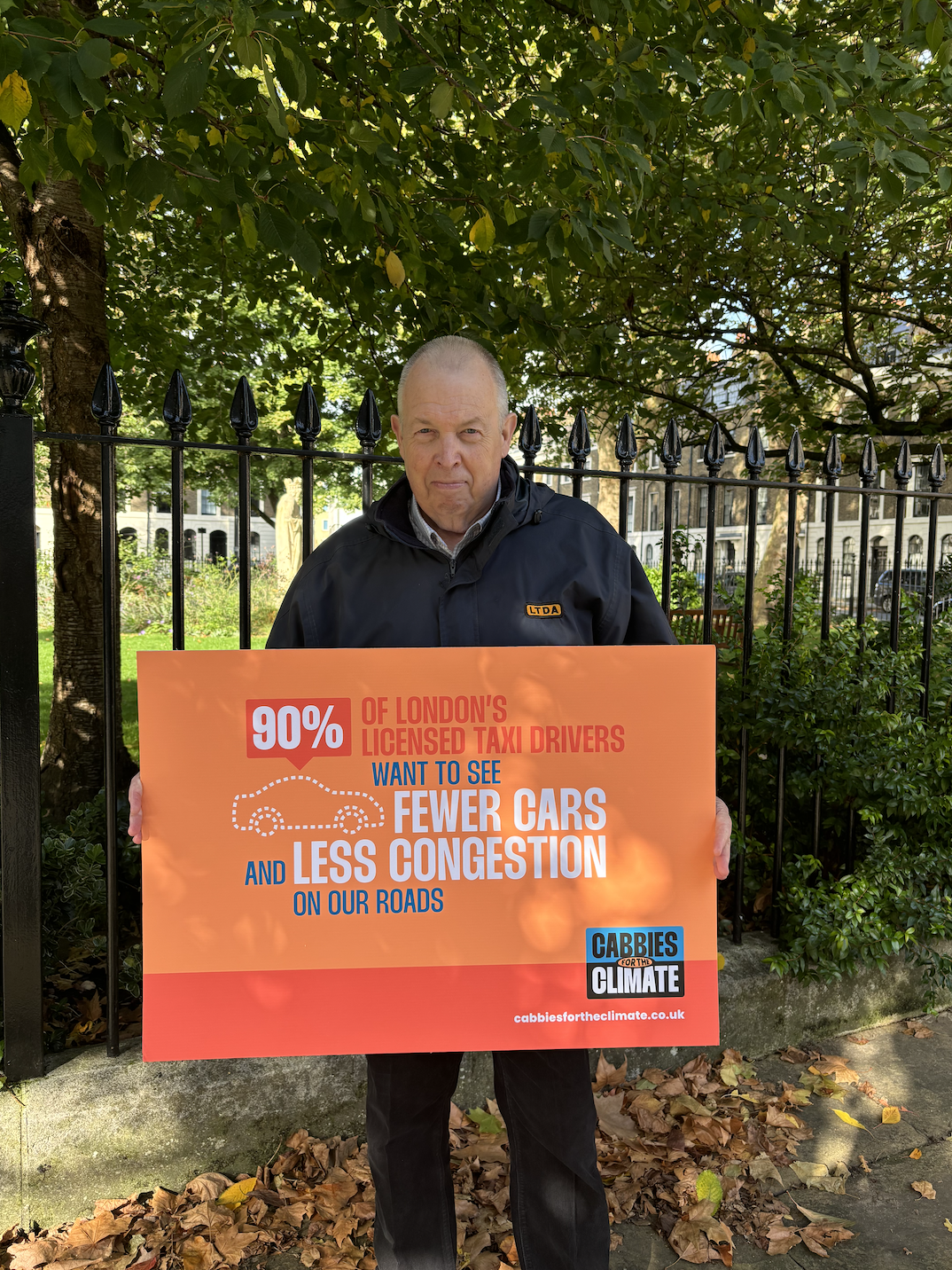“You get a lot of people saying, ‘Oh, do you not want the new electric?’” he says. “People automatically think you just don’t want it. It’s just because the finance, the money of it. If it was cheap enough, I’d been electric already.”
According to the Licensed Taxi Drivers’ Association (LTDA), existing financial support schemes have been either discontinued or reduced. Taxi drivers could previously get rid of their diesel cars using the TfL’s taxi delicensing scheme, which removed upwards of 4,000 older and more polluting vehicles from London’s fleet. This scheme no longer exists.
The government’s Plug-in Taxi grant – extended to April 2025 – provides funding of £6,000 per electric taxi vehicle. But the industry needs “more support”, said Steve Kenton, chairman of the central branch of the Taxi Drivers Association.
“We’ve got a plug-in grant at the moment, which has just recently been reduced from £7,500 to £6000. That doesn’t go far… once you bring in financing costs, it can cost drivers upwards of £100,000 to switch over. There’s really nothing to incentivise cab drivers to change quicker.”
The LTDA has partnered with climate charity Possible to launch a new campaign: Cabbies for Climate.
Possible-commissioned research shows that 46% of drivers feel that their health and wellbeing has improved since going electric, compared to 6% who say it has worsened. Those who have already switched overwhelmingly prefer electric taxis, with 98% saying they would not return to diesel.
Advertising helps fund Big Issue’s mission to end poverty
“You speak to the vast majority of cab drivers,” says McDonnell. “No one’s against it.”
“People maybe feel like cab drivers are these diesel monsters, tearing around the streets. But we’re not.”
“We want to be part of progress. Most of us live in the airspace of London, and we want clean, safe air for our families.”
Izzy Romilly, the sustainable transport campaign and research manager at Possible, echoed this concern about negative stigma.
“Taxi drivers are sometimes stereotyped as being against climate action, or switching to cleaner vehicles, but we’ve found huge support for cutting traffic and going electric,” she said.
“We need to cut traffic by at least 20% to stand a chance of meeting our climate goals, but for those who rely on their vehicles like taxi drivers, switching to a cleaner vehicle is the best option. Getting diesel off London’s streets is critical for Londoners’ health and wellbeing, and for the climate.”
Advertising helps fund Big Issue’s mission to end poverty
Transport is the largest emitting sector in the UK. Domestic transport in the UK emits 99 million tonnes of carbon dioxide equivalent a year, about as much as Venezuala or Chile’s total emissions. Road travel accounts for 91% of this domestic transport emission.
Mohammed Abdi switched to driving an electric cab in 2019. He wants action on climate – and says that there is no time to waste.
“Climate change is real. We all want to breathe clean air, live healthier and for the city to be greener. That’s why I drive a green cab,” he said.
“All cab drivers should be able to get a green cab, but right now it’s just not possible for so many of my colleagues. They need that support to switch.”
Do you have a story to tell or opinions to share about this? Get in touch and tell us more. Big Issue exists to give homeless and marginalised people the opportunity to earn an income. To support our work buy a copy of the magazine or get the app from the App Store or Google Play.










